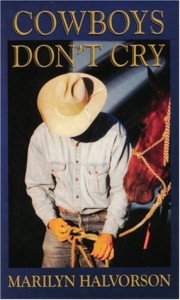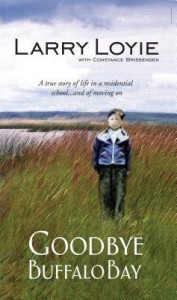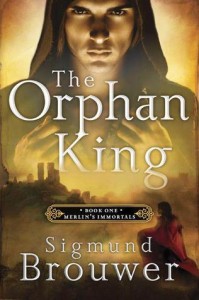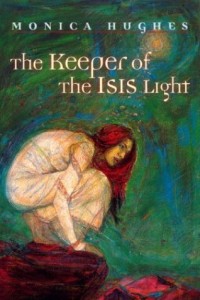Child of Dandelions by Shenaaz Nanji
 Summary: When Ugandan President Idi Admin has a dream that all British Indians should be expelled from the country in 90 days, a nightmare begins for Sabine and her family. With a grandfather who came over from India with his family, Sabine was born in Uganda, and considers herself a Ugandan citizen. Struggling to come to terms with the sudden hatred from friends and the country she loves, Sabina must find within herself the strength to face reality, help her family and grasp the courage to start over again.
Summary: When Ugandan President Idi Admin has a dream that all British Indians should be expelled from the country in 90 days, a nightmare begins for Sabine and her family. With a grandfather who came over from India with his family, Sabine was born in Uganda, and considers herself a Ugandan citizen. Struggling to come to terms with the sudden hatred from friends and the country she loves, Sabina must find within herself the strength to face reality, help her family and grasp the courage to start over again.
Number of Pages: 215
Age Range: 13-15
Review: In a powerful, historical tale of the expulsion of people of Indian ancestry from Uganda in 1972, Sabine and her family are Ugandan citizens being forced to leave the country they call home. Living in a society that treats whites as first class, Indians as middle class and Africans as working class, it seems inevitable that when Ugandan Africans regain control of their country after a time of British rule, some resentment would have to be aired. This resentment comes out in the form of a program called Africanization: putting Africans in the prominent job positions previously held by whites and Indians.
I love the complex nature of Shenaaz Nanji’s writing. While telling the story of Sabine and her family, Nanji thoughtfully explores the dynamics of the world Sabine lives in, explaining and even having her main character empathize with the Africans’ agenda at times. Sabine’s development through the novel is well-done. She begins the story as a naive fifteen year-old who doesn’t believe Admin’s threats will include her family because they are Ugandan citizens born in the country, but as the story progresses Sabine loses friends based on ethnicity, her beloved uncle, and her home, reality sets in.
Sabine is able to recognize the roles she and her family have played in the country’s current situation and strives to make small but immediate changes to make amends. She ends up being a compelling character who shows thoughtfulness, integrity and courage as she is devoted to her family and does everything she can to help and protect them.
Child of Dandelions is a surprising and quality work of historical fiction, and my favourite part was how the title of the book tied into the story. Sabine’s friend calls her and her family weeds, dandelions that need to be uprooted, but Sabine ponders this accusation and decides being a dandelion is actually a positive trait. She comes to realise she can land anywhere, and still flourish. What a beautiful concept and unique way to look at emmigration.
Memorable Quotes:
“Her wild hair flew askew, whirling around her head like snakes. The wind seemed to have gathered a sudden strength. It flapped the clothes on the clothesline with slapping sounds. She could smell the freshness of the clothes as they billowed in the breeze. Zena had taken their memories of good times, rubbed, scrubbed, drained, and discarded them.” – Sabine from Child of Dandelions by Shenaaz Nanji, page 95
“‘No, Katana.’ She picked up one of the willow-patterned china cups they used regularly. It was time to make some changes. She and her family had been treating the Africans like the untouchables in India. Katana could not share their utensils, could not use their washroom. As if he’d pollute them. Every day he waited until they finished their meal; then he cleared the table, washed the dishes, and sat on the kitchen floor to eat the leftovers or to cook the bubbling white ugali, a corn mush. Sabine’s face felt hot with shame. It was not only Mr. Singh or Lalita who were prejudiced, but she and her family as well. The whites and the soldiers, too. They were all prejudiced.” – Sabine from Child of Dandelions by Shenaaz Nanji, page 135
“What was courage, anyhow? Maybe there were different kinds of it. She looked at the crayons in the box. Yellow for Uncle’s courage – he brought sunshine to everyone’s life. Blue for Papa’s nerves of steel. White for Mama, angelic in her love and care. Green for Bapa, who conquered the land. What of herself? What colour was she?” – Sabine from Child of Dandelions by Shenaaz Nanji, page 137
“‘Goodbye,’ she whispered. ‘I will miss you.’
She looked at their house. It’s just a house, she thought. It became a home only when it was filled with the love, trust, and hope of her family. Turtles carry their homes with them so they are always at home. ‘I will carry my home with me.’
‘Goodbye,’ she whispered again.” – Sabine from Child of Dandelions by Shenaaz Nanji, page 175
“They ate in silence. When they made their way to their rooms. Sabine stopped midway in the corridor. ‘Bapa, what will we do without you?’ she asked.
He squeezed her hand. ‘Beta, kismet brought me from India to Africa and I made my home here.’
Sabine smiled. ‘Now kismet will take me to the new world and I will make my home there.’ It was her turn to squeeze Bapa’s hand.” – Conversation between Sabine and her Bapa from Child of Dandelions by Shenaaz Nanji, page 192
“Lalita passed soda and groundnuts to everyone. Overhead, the sky stretched as blue as a robin’s egg, and the morning sun was a ripe gold mango, split open, sweet and soft. Sabine swallowed. How could something so bad happen to Uganda, the Pearl of Africa? Would she ever be able to come back? Before she knew it, tears ran down her cheeks and she cried like a newborn baby.” – Sabine from Child of Dandelions by Shenaaz Nanji, pages 195-196
“She thought about the future, her life in the new world. The best way to avenge the injustice, she decided, would be to live well and be happy. The tenacious gene of the dandelion in her would help her rise out of the African ashes and so the seeds of a new Tree of Life.” – Sabine from Child of Dandelions by Shenaaz Nanji, page 210
Child of Dandelions by Shenaaz Nanji is published by Second Story Press, (2008).
How I Lost You by Janet Gurtler
 Summary: Best friends Grace and Kya have a rule to live by: Buds before studs. But a rape at the age of thirteen has changed Kya, and she hides her pain in alcohol and sexual encounters. Grace’s empathy for Kya leads her to continually make allowances for her behaviour, until Kya’s actions begin interfering with Grace’s future plans. Used to doing everything she can to take care of Kya and safeguard her well-being, Grace is eventually faced with a choice between trying to protect Kya from herself and realising that Kya must start taking responsibility for her own decisions. As the true nature of their friendship is revealed, Grace is placed in a position of protecting herself and her dreams above the most important relationship in her life.
Summary: Best friends Grace and Kya have a rule to live by: Buds before studs. But a rape at the age of thirteen has changed Kya, and she hides her pain in alcohol and sexual encounters. Grace’s empathy for Kya leads her to continually make allowances for her behaviour, until Kya’s actions begin interfering with Grace’s future plans. Used to doing everything she can to take care of Kya and safeguard her well-being, Grace is eventually faced with a choice between trying to protect Kya from herself and realising that Kya must start taking responsibility for her own decisions. As the true nature of their friendship is revealed, Grace is placed in a position of protecting herself and her dreams above the most important relationship in her life.
Number of Pages: 309
Age Range: 15-17
Review: At base of How I Lost You by Janet Gurtler is the story of best friends whose relationship with each other trumps everything else. Devoted to each other, their friendship revolves around Kya needing help and Grace taking care of her. It works for them, and is the most important relationship in both of their lives.
The dissolution of this friendship is devastating for Grace. Though as the book progresses she is able to see more and more how Kya puts her own needs above Grace’s, but she hangs on out of loyalty for a long time.
My enjoyment of the story was frustrated by unanswered questions though. I couldn’t understand why Grace is portrayed as a trouble maker who often gets grounded when she seems so responsible. I wondered if Grace’s mother was talking about herself when she told Grace she knew of a woman who had been raped at a young age but survived, got help through therapy and went on to get married and have children. I also was expecting Kya to end up pregnant, because Gurtler keeps mentioning her need to pee and it seemed like an odd detail to keep including. And who won the last paint-ball game? Who got the spot on the all-female collage paint-ball team?
But the deeper questions I will be asking myself long after this will be about the portrayal of rape in our society and whether rape relieves a person of responsibility for self-destructive and manipulative behaviours. I feel sad after reading it, because it does acutely capture the sexualization of female friendships, and the risk of sexual assault in a culture that feels threatened when girls and woman step into predominately male roles.
There’s a lot more going on in How I Lost You than there first appears to be, and because of that I wouldn’t recommend it unless it was a supervised read.
Memorable Quotes:
“I had an image of her on a lifeboat, hanging on to it by her fingernails. I was slipping too. And truth stared me in the face. As I strained to pull her in and keep her afloat, she was starting to drag me under.” – Grace from How I Lost You by Janet Gurtler, page 242
How I Lost You by Janet Gurtler is published by Sourcebooks Fire, (2013).
Cowboys Don’t Cry by Marilyn Halvorson
 Summary: A terrible car accident leaves Shane without a mother from the age of nine, and in the hands of a father who drinks to forget. As bull rider and rodeo clown, Shane’s father has them following the rodeos across the Prairies in the United States and Canada, but when Shane’s grandfather dies and leaves him a piece of land in Alberta, Shane and his father finally have a place to put down roots. Untangling the feelings and pain of the past is going to take longer than the four years that have already passed; unfortunately no healing can begin until someone starts talking. After a night of drinking on the part of Shane’s father, a confrontation between father and son ignites the anger between them, and has lasting consequences for their relationship.
Summary: A terrible car accident leaves Shane without a mother from the age of nine, and in the hands of a father who drinks to forget. As bull rider and rodeo clown, Shane’s father has them following the rodeos across the Prairies in the United States and Canada, but when Shane’s grandfather dies and leaves him a piece of land in Alberta, Shane and his father finally have a place to put down roots. Untangling the feelings and pain of the past is going to take longer than the four years that have already passed; unfortunately no healing can begin until someone starts talking. After a night of drinking on the part of Shane’s father, a confrontation between father and son ignites the anger between them, and has lasting consequences for their relationship.
Number of Pages: 138
Age Range: 13-14
Review: Cowboys Don’t Cry by Marilyn Halvorson is an emotionally-charged story about the dynamic between a father and son after the death of the woman who brought light and life to their world.
Raised to be a stoic cowboy, Shane has learned from his mother that showing emotion and crying is something everyone needs to do. But Shane’s father is someone who drowns his tears in alcohol, which forces Shane to become the parent as they travel from rodeo to rodeo and his father goes from being a bull riding champion to a rodeo clown. Settling down on Shane’s grandfather’s land is new for both of them, except while living there provides stability for Shane, being tied down seems to agitate his father.
I loved Shane’s voice in the novel. Halvorson’s writing style is smooth and conversational, yet Shane has real depth. The story is a genuine exploration of the expression of grief. Jeff’s comparison to the Morgan men to a horse who gets tangled up in wire and still fights to get out is apt and powerful.
And though reading about the struggles Shane and his father had in connecting was so painful at times, I thought Halvorson did an excellent job in her ending. I believed it, and was satisfied things were going to move in a better direction for Shane. I also loved that the Sutherlands were able to provide something Shane had been missing: love without resentment and actual parenting.
I also like the theme of land being both a grounding force, and a place to grow. It isn’t till Shane gains the stability of living in a permanent place that he is able to make friends and find support, something both he and his father have needed since his mother’s death.
To top it all off, I quite enjoyed the culture aspect as I was immersed in the world and hearts of cowboys. Though their emotions seem to be buried deeply, they love the outdoors, the animals and the danger of the rodeo life. Since it is a world far from my own, it’s one I’d love to read more about and Halvorson’s other books seem like a perfect place to start.
Memorable Quotes:
“For some reason, Mom’s words came back then. And for the first time, ever, I wasn’t sure I believed them. I figured maybe cowboys, even cowboys like my dad, needed to cry as much as anybody else. It was a long time later when I began to understand that maybe a guy like Dad couldn’t cry. Maybe if he ever started he’d never get stopped.” – Shane from Cowboys Don’t Cry by Marilyn Halvorson, page 5
“It was somewhere in Oregon. Dad had left me in a hotel room and sad he was going out for a little while. Only, he ended up getting in a fight in the bar and getting jailed overnight. I couldn’t go to sleep. I kept wondering where he was and if he was ever coming back so, for something to do, I picked up one of the Louis L’Amour westerns Dad always buys, and started reading. And suddenly I found out something special about books. They’re a place to escape to when you can’t really go anywhere. As long as I kept reading, I could just make myself disappear into the story and not be scared or worried or lonesome, nothing – I didn’t even have to be myself any more.” – Shane from Cowboys Don’t Cry by Marilyn Halvorson, page 13
“Then he started talking, slow and quiet. ‘Did you see this horse when she was tangled up in the wire?’
I nodded.
‘All right. Then, tell me, did she get cut up so bad because she got tangled up or because she wouldn’t quit fightin’, no matter how bad it hurt her?’
I didn’t know what he was driving at but I wasn’t about to get sassy again. I shrugged. ‘Fighting, I guess.’
Jeff nodded. ‘That’s right. And the same thing happens to people. Life sometimes tangles you up real bad. And you’ve only got two choices. Live with it as best you can and try and untangle it a little at a time. Or be like this poor ol’ horse. Tear yourself to pieces fightin’ it and still get loose.’
He was quiet a minute and when he started talking again he sounded tired. ‘And you Morgans are real good at tearing yourselves up.'” – Conversation between Jeff and Shane from Cowboys Don’t Cry by Marilyn Halvorson, pages 45-46
“Casey and her mom and dad were sitting on the deck outside their living room. Their big German Shepherd was lying beside Mrs. Sutherland and a couple of fat cats were flaked out in the last of the sunshine. They all looked so much like the perfect family that someone should have written a grade one reader about them.” – Shane from Cowboys Don’t Cry by Marilyn Halvorson, page 103
Cowboys Don’t Cry by Marilyn Halvorson is published by Clarke Irwin, (1984).
Goodbye Buffalo Bay by Larry Loyie with Constance Brissenden
 Summary: Attending a residential school in Buffalo Bay from ages nine to thirteen, Lawrence learns to make himself small and is ‘encouraged’ to forsake his Cree heritage. Fortunately not all of the adults in his life abuse their power, and one Sister helps foster in him a love of read, writing and learning. When he gets out of school at last, Lawrence is plunged into an adult world, taking whatever job opportunities come along. As he begins to see more of Canada and proves himself as a valuable worker, his desire to travel expands and he dreams of future opportunities and journeys.
Summary: Attending a residential school in Buffalo Bay from ages nine to thirteen, Lawrence learns to make himself small and is ‘encouraged’ to forsake his Cree heritage. Fortunately not all of the adults in his life abuse their power, and one Sister helps foster in him a love of read, writing and learning. When he gets out of school at last, Lawrence is plunged into an adult world, taking whatever job opportunities come along. As he begins to see more of Canada and proves himself as a valuable worker, his desire to travel expands and he dreams of future opportunities and journeys.
Number of Pages: 141
Age Range: 11-13
Review: A more gentle look at the residential schools than other reads on the same topic, Goodbye Buffalo Bay by Larry Loyie follows Lawrence, a thirteen year-old aged into maturity by his time away from home. Taught to mistrust adults and forget the ways of his people, the Cree, finishing school means going back to a life that is now alien to him. Unlike most children in the school, Lawrence hangs on to the Cree language he learned from birth so is still able to communicate with his relatives, meaning he hasn’t lost everything, but trying in some way to regain what has been lost will take time.
Instead, Lawrence finds himself needing to work, and taking any job available. He shows his value despite his size and age with strength and determination, and re-learns some of the lost ways of his people.
But it’s also a story about emerging from horrible events in your life. After growing up in an unsafe environment at risk for physical and emotional abuse, Lawrence needs time to adjust to regular life, and normal life events like girls falling for him take him by surprise. Work and skating provide a focus while he finds himself, and the respite gives Lawrence the chance to work up the courage to dream again.
While Lawrence’s journey was informative, I felt like I learned the most from note at the end of the book, which laid out the bare facts of the development of residential schools in Canada, all the way up to their end and Prime Minister Harper’s public apology for them in 2008. Loyie’s story is a piece of our history that we should never forget so we do not repeat it.
Memorable Quotes:
“Nothing would ever be the same again he was convinced. He was too afraid to talk to older people anymore. After so many years in the residential school, he wasn’t used to it. He never spoke to anyone at the Mission except the workers. And only some of them, like Barney Bottle, were kind and helpful.
Lawrence was invisible, like The Phantom. No one seemed to know him anymore.” – Lawrence from Goodbye Buffalo Bay by Larry Loyie with Constance Brissenden, page 71
Goodbye Buffalo Bay by Larry Loyie with Constance Brissenden is published by Theytus Books, (2008).
The Orphan King by Sigmund Brouwer
 Summary: With a unfulfilled prophecy looming over Magnus, King Arthur’s former castle, many factions with different intentions are fighting to see how it will turn out. At the centre of the prophecy is a young man named Thomas, rumoured to be the one who will take back Magnus and restore rightful ownership to his family. With the help of knight, a young petty thief and a deaf mute young woman all meant for the gallows, Thomas leaves the abbey where he lived with monks and sets out to make the prophecy come true. There are a lot of mysterious forces working both for and against him, but somehow he must find the courage and determination to see through the death wish of his beloved mentor and mother.
Summary: With a unfulfilled prophecy looming over Magnus, King Arthur’s former castle, many factions with different intentions are fighting to see how it will turn out. At the centre of the prophecy is a young man named Thomas, rumoured to be the one who will take back Magnus and restore rightful ownership to his family. With the help of knight, a young petty thief and a deaf mute young woman all meant for the gallows, Thomas leaves the abbey where he lived with monks and sets out to make the prophecy come true. There are a lot of mysterious forces working both for and against him, but somehow he must find the courage and determination to see through the death wish of his beloved mentor and mother.
Number of Pages: 213
Age Range: 13-15
Review: There’s something about the world of knights, kings and castles that takes a reader to a whole other place. It’s a world where physical strength equals power, and hopefully those who have the power abide by rules of loyalty, chivalry and honour.
But when power is abused, it seems the Immortals are in charge of making things right. Since The Orphan King by Sigmund Brouwer is the first in a series called Merlin’s Immortals, I don’t have a very clear idea of who the Immortals actually are after one book, although I believe they are a force for good. Little confused how someone who is considered an Immortal can die, but I’m guessing that is or will be explained in the other books in the series.
While I had some questions by the end of the story, there weren’t any that Brouwer didn’t ask himself. Thomas’ tale of rising from slave status for monks at the abbey to taking over Magnus, King Arthur’s former estate, is riveting. He’s a clever character with good intentions, and I loved his rag-tag company that helps him achieve the prophecy. I had my doubts about whether they would be able to or not, but Brouwer’s story development was convincing.
Mostly I just love being immersed in that time period, when magic was a solar eclipse and knowledge about powders and acids that can incapacitate a person’s enemies. It was a change of pace from the books I’ve been reading lately, and I’m looking forward to seeing how it compares to Brouwer’s contribution to Seven the Series.
Memorable Quotes:
“‘You show uncanny wisdom for a boy,’ Monk Philip choked out, his head still low. When he straightened, he made no effort to hide tears. ‘Perhaps that is the worst of it all, not to make a choice between good or evil. I’m old now. I can barely hear, yet the slightest noise wakens me from troubled sleep. My bones are brittle and I’m afraid of falling, even from the steps to the chapel. The terrifying blackness of death is too soon ahead of me, and all I am to the God who waits is an empty man who has only pretended to be in His service.'” – Monk Philip from The Orphan King by Sigmund Brouwer, page 23
“‘Listen carefully,’ the knight said with a grin that reflected their growing friendship. ‘Aside from faith and honor, knowledge is the most valuable thing a man can possess, and far more useful than a sword.'” – William from The Orphan King by Sigmund Brouwer, page 104
“‘Thomas, Thomas…’ Katherine placed a cool hand upon his.
He shook free. ‘And you,’ he blurted with anger. ‘How could you be so cursed if God truly loved. . .?’ Then he realized what he was saying. ‘I’m sorry,’ he said in a low voice.
‘Do not trouble yourself,’ Katherine said. ‘I am accustomed to the covering of my face.’ She touched the bandages lightly. ‘This is not a curse. It is only a burden. After all, our time on earth is so short. And God is more interested in our hearts and souls than in our appearances.'” – Conversation between Katherine and Thomas from The Orphan King by Sigmund Brouwer, page 164
The Orphan King by Sigmund Brouwer is published by WaterBrook Press, (2012).
The Keeper of the Isis Light by Monica Hughes
 Summary: On a planet named Isis, Olwen and her Guardian preserve the Isis light, a satellite connection to Earth. Over the years, they’ve recorded data from the planet and sent their records to Earth, in the hopes that eventually a ship will come with settlers to inhabit Isis. Olwen is ten in Isis years, 16 in Earth years, and happy with her life with the Guardian. Perfectly adapted to Isis’ environment, she is free to roam the planet as she pleases. But when the settlers finally arrive, Olwen’s bubble of isolation is popped, and while she falls in love with a seventeen year-old named Mark, she learns suddenly and painfully that her ‘adaptations’ are not acceptable by Earth standards. Put in a position of having to grow up quickly, Olwen must decide her own standards of beauty and how far she is willing to go to fit in.
Summary: On a planet named Isis, Olwen and her Guardian preserve the Isis light, a satellite connection to Earth. Over the years, they’ve recorded data from the planet and sent their records to Earth, in the hopes that eventually a ship will come with settlers to inhabit Isis. Olwen is ten in Isis years, 16 in Earth years, and happy with her life with the Guardian. Perfectly adapted to Isis’ environment, she is free to roam the planet as she pleases. But when the settlers finally arrive, Olwen’s bubble of isolation is popped, and while she falls in love with a seventeen year-old named Mark, she learns suddenly and painfully that her ‘adaptations’ are not acceptable by Earth standards. Put in a position of having to grow up quickly, Olwen must decide her own standards of beauty and how far she is willing to go to fit in.
Number of Pages: 191
Age Range: 13-15
Review: For a story that’s less than 200 hundred pages long, Monica Hughes’ The Keeper of the Isis Light expertly explores themes of beauty and what it means to be an adult in a complex way.
I can’t say how much I love the genre of science fiction enough because it allows writers and readers to contemplate topics that relate directly to our world today in a non-threatening manner. The story of Olwen being a remote citizen of humanity on the planet of Isis is powerful one, as she is forced to see herself in a whole new light when other humans come from Earth to her planet, Isis.
Olwen’s story is a bit of heart-wrenching tale because Hughes so acutely portrays the moment of realisation that comes when you find out you’re different from the others. And finding out that the difference will cause others to treat you with fear is even worse. I love Olwen’s character because upon learning this, she still decides she is beautiful and uses the knowledge to mature quickly, taking on a more adult persona. Olwen is quite strong, facing the loss of Mark when he can’t get past her appearance, and deciding she will be better off living the life she’s always lived, with Guardian, someone she knows truly loves her as she is.
But though I loved Olwen, my favourite character has to be Jody, one of the settler children who is about nine Earth years old. He seems to be the only one who is able to see Olwen as a person, and though he does think she looks strange, he is not afraid of her. Hughes shows that children are more accepting of differences, at least until they are taught not to be.
The scientific aspect fascinated me, and I enjoyed reading about how Guardian tried and succeeded in adapting Olwen to her environment when her parents were killed by it. It’s another Hughes story where she explores what will happen when over-population on Earth will challenge humans to find other planets to live on, and I hope to read the rest of the Isis series in the new year.
Memorable Quotes:
“She faltered. Flip. Flip. Flip. Flip. The new automatic memory took over her brain again. She forced the pictures away. Guardian had never told her about a God who could do a thing like that to Mark. It was not fair. They loved each other. They had been born five parsecs apart and some miracle had brought them together to love each other. It was as if God had made a beautiful jewel for her, and then just as she had reached out for it, He had slapped her hand aside, broken it, and sent the pieces flying. How could she pray to that kind of God?” – Olwen from The Keeper of the Isis Light by Monica Hughes, page 94
“‘To be an adult and to hide one’s hurt is rather like acting in a play,’ thought Olwen, as she walked slowly across the room and seated herself with studied grace in the chair opposite the Captain’s.” – Olwen from The Keeper of the Isis Light by Monica Hughes, page 179
The Keeper of the Isis Light by Monica Hughes is published by Tundra Books, (1980).




 Amy Mathers has been passionate about reading from a very young age, and hopes others will share her enthusiasm for funding a teen book award.
Amy Mathers has been passionate about reading from a very young age, and hopes others will share her enthusiasm for funding a teen book award. 





